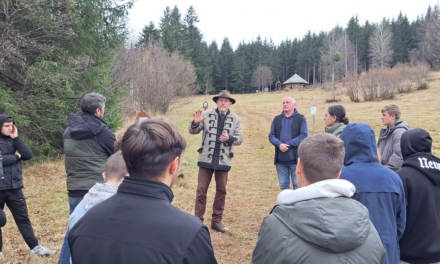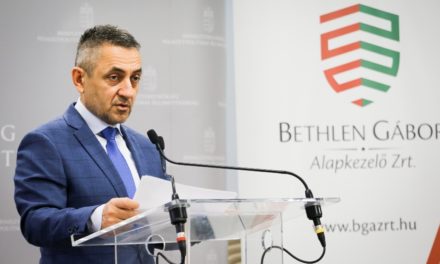For the time being, Transylvania is not threatened by the phenomenon in the highlands, where after the fragmentation of the ethnically-based Hungarian formation, in the last parliamentary elections, nearly forty percent of Hungarians voted for the Slovak party.
The battle is between the RMDSZ and the Romanians - this is how the Szatmár county organization of the Association for the Unification of Romanians (AUR) justified its support of the national liberal candidate Adrian Cozma, known for his anti-Hungarian expressions, in the election for the position of council president.
A clear line, no side talk: the replacement of RMDSZ politicians overrides all kinds of party interests and ideological differences.
The AUR said RMDSZ, but it is obvious that he meant the Hungarians when he mentioned the association. Down with the Hungarians from Szatmár's leading positions! – this is actually the password, and potential voters who share Cozma's or similar views are also aware of this. While the National Liberal Party (PNL) is trying to save European Romania from the extremist AUR in its openly advertised messages, it falls head over heels with the George Simiones at the local level. Ciprian Dobre, the president of the PNL's Maros county organization, has called more than once for the unity of the Romanian parties in Marosvásárhely, emphasizing that AUR is also waiting for the unit to replace the Hungarian mayor. The failure of the initiative was not up to him.
Transylvanian politicians are cautious about ethnic voting, lest they be labeled nationalist. The reality, however, shows that in the last thirty years, in those settlements where the ratio of Hungarians and Romanians is almost the same, the voters "revote" in a low proportion.
There is a deep, permanent ethnic fault line in Romanian politics, which there is no real party interest in eliminating. The Romanian formations sometimes play the "Hungarian card", and with the exception of a few stray exceptions, there is no effort on their part to address the Hungarians. It is more convenient for them to negotiate with the RMDSZ, which collects Hungarian votes, after the elections.
For Transylvanian Hungarians, ethnic voting may be boring, but according to experience, it is still the most effective tool for protecting interests.
It wasn't that long ago when a small group of Hungarians in big cities (those who consider the close cooperation of RMDSZ and Fidesz an unforgivable sin, people living in mixed marriages, but also naive anti-establishment young people) suddenly became enthusiastic supporters of the Save Romania Alliance (USR). Their favorite party not only looked down on the Hungarians, but also on the government and even on itself. The USR is now trying to stay afloat, hand in hand with two strange party remnants.
For the time being, Transylvania is not threatened by the phenomenon in the highlands, where, according to expert calculations, nearly forty percent of Hungarians voted for the Slovak party in the last parliamentary elections, after the ethnically-based Hungarian formation split several times.
The fact that this is the case is greatly contributed to by the experiences gained from the Romanian politicians of the last three decades. We can know one thing for sure about them: the moment or situation in their public life can come at any time, which justifies them to kick the Hungarians.
Featured image: László Beliczay / Krónikaonline.ro












